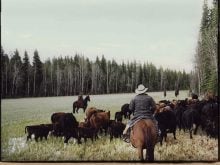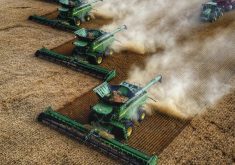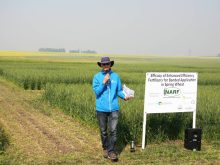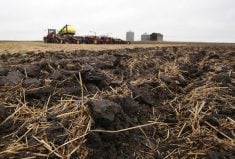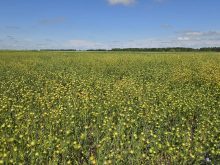Some say Monette Farms’ expansion into Manitoba is a sign of the times while others say it should be stopped
UPDATED: April 1, 2024 – 0815 CST – WINNIPEG — Monette farms, one of Canada’s largest grain farming operations, is stirring up controversy with its plan to raise crops in Manitoba’s Westlake region, an area formerly used for cattle production.
The scale of land-clearing in the Eddystone area west of Lake Manitoba has sparked surprise among area residents and even a petition opposing the activity, although there is no evidence indicating Monette is operating illegally.
The Western Producer visited the Monette’s newest farm March 27 and saw bulldozers knocking down poplars and other trees north of Eddystone, which is located about 200 kms northwest of Winnipeg. Full sections of land had been cleared as the bulldozers pushed the trees into windrows that stretched across sections of land.
Read Also
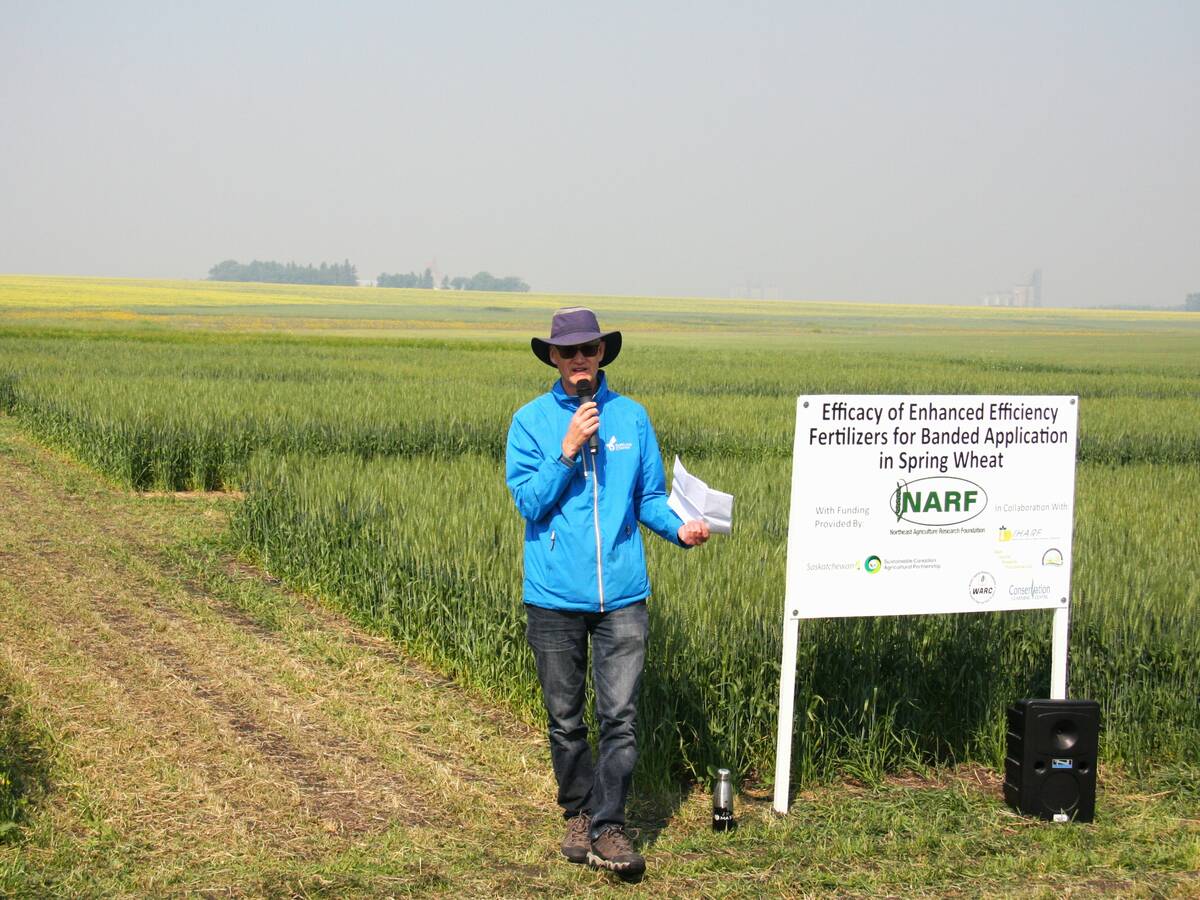
Fertilizer method’s link to emissions studied
A researcher says others studying greenhouse gas emissions aren’t considering how the loss of nitrogen into the atmosphere correlates with fertilizer application or if there is an impact to yield.
A farmer in the region said 8,000 acres of bush have been cleared this winter to convert the land into grain production, with plans to clear more land in future years. The Western Producer has not confirmed those acreage numbers.
Monette Farms is based in Swift Current, Sask., and operates about 12 farm sites in Saskatchewan, Montana, Arizona and The Pas, Man. The company mostly produces grain but also has a cattle ranch in British Columbia and one near Swift Current.
Monette said in a social media post the third week of March that it now has a “second farm location in Manitoba.” The company is recruiting farm workers to join its Eddystone operation.
“Being part of our newest farm from the beginning means you have the chance to grow with us, as the farm grows,” Monette said March 18.
The Western Producer contacted Monette Farms for comment on this story, but had received no response before press time.
The Eddystone farm will add to the current size of Monette Farms, which is estimated at more than 350,000 acres.
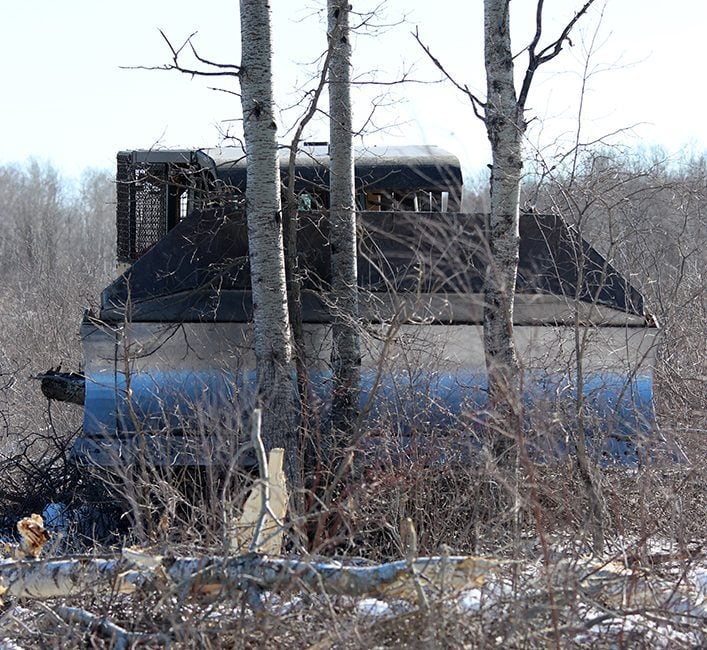
Monette’s job postings suggest that its new farm will be used for grain production. One posting for a farm supervisor describes the work site as a wheat and oilseed farm, but no soybeans.
Monette bought all or a portion of its new farm from Eddystone Ventures, a partnership that’s been active in the region for several years — purchasing smaller farms and clearing land to expand their production.
Local reaction
The Western Producer spoke with several farmers in the Westlake region and a producer from Ste. Rose du Lac. One farmer said the clearing of thousands of acres of trees to produce grain is
surprising. The region where the new farm is located has traditionally been considered cattle country, mostly Crown land with relatively thin topsoil cover.
Monette can do what it wants on its land, but the area isn’t ideal for crop production, he said.
Another producer was more upset. With the Monette’s owning such a large tract of land, it’s now difficult for young cattle producers to get started in the region, he said.
Ian Kotelko, a volunteer firefighter who lives in Eddystone, started an online petition in February to push back against what he describes as a “threat” to the region.
“This not only impacts our community’s way of life but also threatens the biodiversity that makes our region so unique,” the petition said.
More than 200 people have signed the online petition that encourages people to take action. However, it doesn’t specify what the “action” should be.
Clearing trees for crops has been done in the region for decades, but the scale of this is different, Kotelko said.
“Someone might clear a couple of sections here and there to provide grain for the cattle,” said Kotelko, adding he was frustrated with the rapid changes in the community.
So, he posted the petition.
“I was upset that … there was no care for anyone in the area, any of the smaller farmers in the area.”
Loss of livestock land
The land use changes around Eddystone are an example of a much larger trend in Canadian agriculture.
The plowing down of pasture and marginal land, previously used for livestock, has been accelerating in Western Canada over the last 15 years. With strong grain prices and double-digit growth in cropland values there is a financial incentive for grain farmers to buy pastureland and convert it to crops.
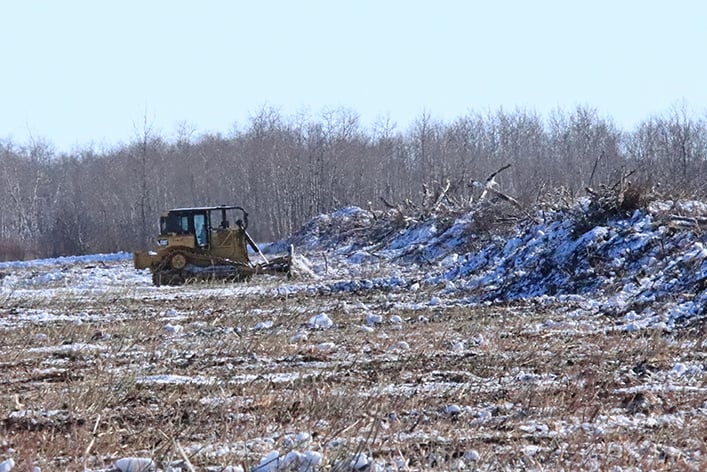
The Canadian Cattle Association has estimated that Canada is losing about 150,000 acres per year of grasslands. If the trend continues, the CCA and conservation groups like Ducks Unlimited are worried about the future of grasslands and pasturelands in Canada.
The CCA is lobbying for an incentive program, where livestock producers will be paid to maintain grasslands.
“If the government and society values the biodiversity and habitat that grasslands provide, then you’re going have to figure out a way (an incentive) … to keep it,” said Tyler Fulton, CCA vice president.
Martin Unrau, former president of the CCA, said in 2023 that current government polices encourage the conversion of livestock land to cropland.
On the grain side of his mixed farm near MacGregor, Man., Unrau can get subsidized crop insurance that “will cover my expenses,” he said.
“The policy at the ground level… is promoting the tearing up of fragile (marginal) land…. I’ve always said if somebody breaks up some new land, there should be a five-year (wait) before you can even get crop insurance.”
Experts with Agriculture Canada are also worried about land conversion to cropland. When land in a region is used for both livestock and crop production, the greenhouse gas emissions are
much lower than regions with intensive crop production, says Tim McAllister, an AAFC scientist in Lethbridge
Change is part of farming
However, in the case of Eddystone, Man., it’s possible that land use change was inevitable.
Drake Warrener, who grew up on a farm in the Westlake region and now lives in Melita, Man., said Eddystone Ventures, the farm operator before Monette, often bought land from producers in the area who were nearing retirement.
“They offered prices on farms that were fair and reasonable and made meaningful compromises to ensure that the other parties were happy and comfortable. One seller remained in his home for years only having to pay for his utilities, never owing rent,” Warrener said.
Colin Hudon, one of the partners, went out of his way to help locals, Warrener added.
As an example. a couple had a fire in their farmhouse and Hudon provided them with a place to live.
Kotelko has mixed feelings about his petition because Monette Farms could be a possible place of employment for him and other people in the community.
The new jobs are welcome, but Kotelko says the transformation of the region north of Eddystone is happening too fast.
Warrener agreed that the area has changed dramatically.
Where there was trees and cattle, there are now huge tracts of open land.
“You drive up the road (that) you drove up 10 years ago, and it feels like you’re in a different place,” he said. “I understand how shocking that is.”
Still, economic realities are economic realities.
“The economics of farming has shifted and smaller farms are growing more extinct every year,” Warrener said. “This is not an Eddystone problem. This is a global phenomenon.”
Contact robert.arnason@producer.com







